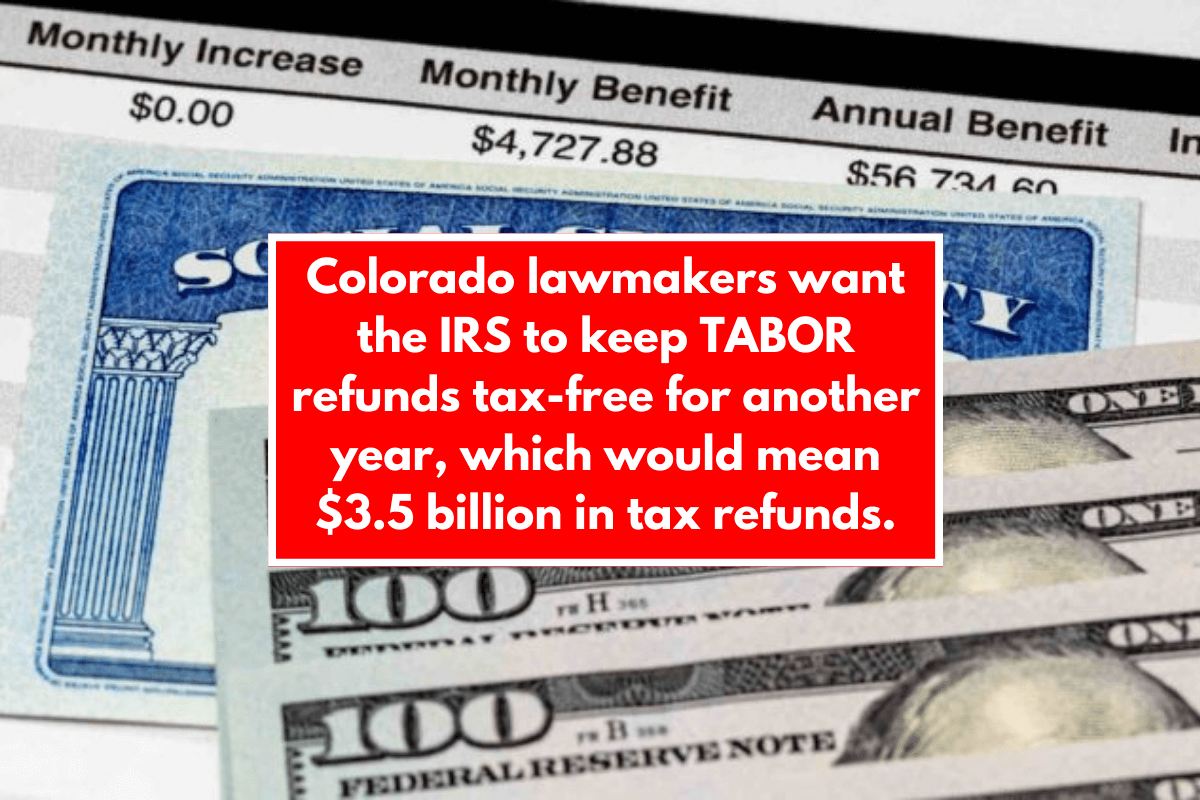Colorado Leaders Urge IRS to Preserve Tax-Free Status of TABOR Refunds
Congressional Representatives Warn of Financial Strain and Confusion if TABOR Refunds Are Taxed
According to The Center Square Colorado, Colorado’s Congressional leaders are urging the IRS to keep Taxpayer’s Bill of Rights (TABOR) refunds from being taxed. In a letter to IRS Commissioner Danny Werfel both Democratic and Republican representatives stressed the need to keep these refunds tax-free. They are worried that any new IRS rules labeling TABOR refunds as taxable income could confuse taxpayers and cause financial problems for Colorado residents. The letter highlights that these refunds have been tax-free for 30 years and changing this would interfere with state finances and add unnecessary complications for taxpayers.
TABOR refunds for the fiscal year 2022-2023 are set at $800 and $1,600 and have traditionally been exempt from federal taxes. This practice has been in place since Colorado voters approved TABOR refunds in 1992. Colorado’s federal legislators argue that changing how these refunds are taxed would create major issues for state revenue officials and could lead to unexpected tax bills for residents especially those with lower incomes who depend on these refunds. They believe that altering the tax treatment could make life harder for many people.
READ ALSO: $3,600 To $6,000 In Tax Credits: Kamala Harris’ Plan To Ease Middle-Class Strains With $1.5 Billion In Annual Benefits

$1.6 Billion at Stake: Colorado Lawmakers Urge IRS to Keep TABOR Refunds Tax-Free for 30 Years, Protecting State Finances and Residents! (PHOTO: The Denver Post)
Colorado Leaders Demand Clarity from IRS to Prevent Disruption of TABOR Refund System
According to the IRS’s 2023 guidelines most state tax refunds are not taxable unless specific conditions are met especially for those who itemize deductions. However Colorado leaders are concerned that applying new tax rules to TABOR refunds could create confusion and disrupt the current system. They point out that it would take a lot of time and resources to update the public and adjust state refund systems. The Congressional leaders are pushing for a clear resolution to avoid causing unnecessary tax issues for Colorado residents.
READ ALSO: 1.25 Million North Carolina Taxpayers To File For Free With IRS Direct File Program, Saving $5.6 Million In Fees And Claiming $90 Million In Refunds!

















































